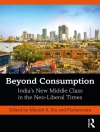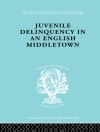This Handbook is the world′s first generic major reference work to provide an authoritative guide to the theory, method, and values of social work in one volume.
Drawn from an international field of excellence, the contributors each offer a critical analysis of their individual area of expertise. The result is this invaluable resource collection that not only reflects upon the condition of social work today but also looks to future developments.
Split into seven parts, the Handbook investigates:
– Policy dimensions
– Practice
– Perspectives
– Values and ethics
– The context of social work
– Research
– Future challenges
It is essential reading for all students, practitioners, researchers, and academics engaged in social work.
Jadual kandungan
PART ONE: WELFARE, SOCIAL POLICY AND SOCIAL WORK
Social work, social policy and welfarism – David Gil
Theorising welfare for social work – Mimi Abramovitz
New modalities of welfare governance – Robert P. Fairbanks II
Welfare professionals and Street-level Bureaucrats – Sanford Schram
Gender and welfare – Mary Daly
Welfare and social development – James Midgley
PART TWO: SOCIAL WORK PERSPECTIVES
Practice perspectives – Pamela Trevithick
Ecological perspective – Gordon Jack
Behavioural perspectives – Eileen Gambrill
Family perspectives – Jacqueline Corcoran
Strengths perspectives – Patrick Sullivan
Critical perspectives – Karen Healy
PART THREE: SOCIAL WORK PRACTICE
Knowledge for reflective practice – Paula Doherty & Sue White
Risk assessment and decision making – Eileen Munro
Integrative psychotherapy – Marlene G. Cooper
Crisis intervention and trauma work – Barry Cournoyer
Empowering and transformative practice – Karen S. Haynes
Macro-community practice – Keith Popple
PART FOUR: SOCIAL WORK VALUES, ETHICS
Codes of ethics – Frederick Reamer
Ethical decision making – Donna Mc Auliffe
Anti-oppressive practice – Lena Dominelli
Feminist ethics of care – Brid Featherstone & Kate Morris
Diversity and social work practice – Purnima Sundar
Human rights and social justice – Richard Hugman
PART FIVE: SOCIAL WORK RESEARCH
Mapping the social work research agenda – Daniel Gredig, Ian Shaw and Peter Sommerfeld
Evidence-based social work – Bruce Thyer
Intervention research – Brian Taylor
Evaluation research – Donald Forrester
Qualitative social work research – Deborah Padgett
Participatory action research – Mark Baldwin
Systematic review – Elaine Sharland
PART SIX: SOCIAL WORK IN CONTEXT
Children and families – Stan Houston
Mental health – Barbara Fawcett
Older people – Nancy Hooyman
Disability – Romel Mackelprang
Immigrants and refugees – Doreen Elliott
Drug and alcohol intervention – Holly Matto
Criminal and juvenile justice – Nicola Carr
Family support services – Steven Walker
PART SEVEN: FUTURE CHALLENGES FOR SOCIAL WORK
The future(s) of social work – Paul Michael Garrett
Social work education – David Stoesz & H. Karger
Interprofessional practice – Imogen Taylor
New technologies for practice – Thomas Ley
Service-user participation – Peter Beresford
International social work – Narda Razack
Social work in developing countries – Kwaku Osei-Hwedie, Morena Rankopo
The politics of social work – Iain Ferguson Stirling
Mengenai Pengarang
In 2008 Stephen Webb was appointed from the University of Sussex, UK to the University of Newcastle. He is Professor of Human Sciences and Director of the newly established Research Institute for Social Inclusion and Wellbeing (RISIW). Professor Webb is one of the worlds leading international researchers in the field of human services, Social Policy and is a pioneer of evidence-based practice research. His influential international research and publications since the late 1980s have significantly enriched the field of human services research by bringing innovative theoretical and methodological perspectives to the evaluation of social interventions and professional practice. His 2006 book Social Work in a Risk Society is widely acclaimed by international reviewers as demonstrating advanced scholarship and integrating sociological analysis to construct new conceptual and methodological frameworks in social work. His 2001 publication: ‘Some considerations on the validity of evidence-based practice in social work’, British Journal of Social Work, 31 (1), pp.57-79 is the world′s highest cited social work (field 1607) publication and ranked as the most influential journal article in the discipline over the past decade (Hodge et.al, 2011).












